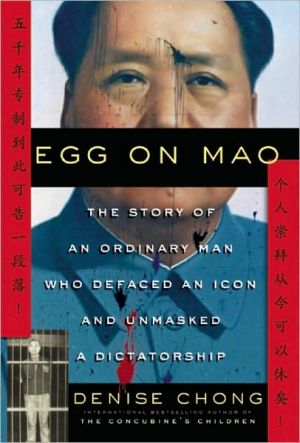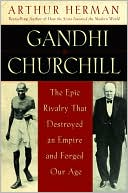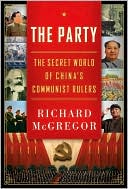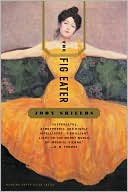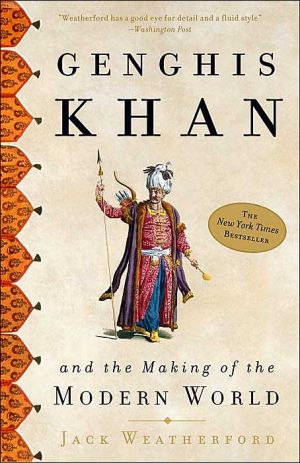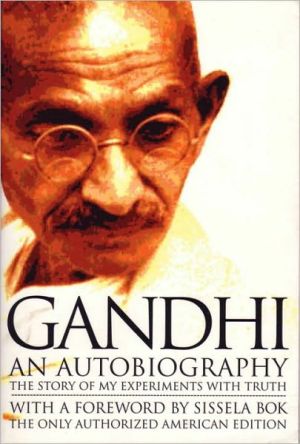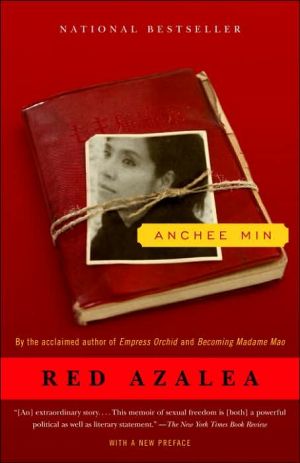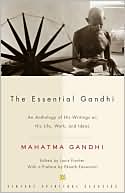Egg on Mao: The Story of an Ordinary Man Who Defaced an Icon and Unmasked a Dictatorship
The eagerly-awaited new book by Denise Chong, author of the award-winning, national bestseller, The Concubine’s Children.\ In her first book in a decade, beloved author Denise Chong, tells the story of a man who humiliated a repressive regime in front of the entire world, and whose daring gesture informs our view of human rights to this day.\ Despite his family’s impeccable Communist roots, Lu Decheng, a small town bus mechanic, grew up intuiting all that was wrong with Mao’s China. As a...
Search in google:
The hail of 30 paint-filled eggs, cracking and leaking across the towering portrait of Chairman Mao, caught the Tiananmen Square protestors off guard. There was condemnation and confusion. A clash of cheers and jeers accosted the three young men whose collective act defied the dictator who molded their country and their lives. Egg on Mao pivots around that defining moment during the 1989 student protests, focusing on the life of a bus mechanic named Lu Decheng and how his frustrations growing up in a backwater Chinese town under a repressive regime led him to board a train to Beijing with his two friends to join the protests. Ultimately labeled a political instigator, Lu and his friends disappeared into the Chinese prison system and were not seen by the public again for almost 15 years. Lu’s release from prison and subsequent political asylum in Canada made it possible for Denise Chong to share his story of unyielding bravery and defiance.Part biography of a gesture, part testament to the power of the individual, Egg on Mao honors the courage of protest and the remarkable momentum of change. The Washington Post - Justin Moyer Denise Chong, author of The Girl in the Picture, a biography of the burned villager in Nick Ut's iconic Vietnam War photo, focuses on another small character in a big story in Egg on Mao to unearth startling truths about Chinese democracy…in a world of compromise and half-measures, it's refreshing to read about Lu's ill-conceived but thoroughly punk-rock gesture of defiance.
ONE\ \ The reaction of onlookers caromed wildly between praise and condemnation. Many remained incredulous, not knowing what to make of what they had just seen the two young men do.\ The curious lobbed questions.\ "Who are you?"\ "Who do you represent?"\ "Why would you do that? What do you want to achieve by doing this?"\ "The suffering in China today can be traced to Mao Zedong and to the dictatorial rule of the Communist Party–" Decheng was surprised at the confidence in his voice.\ A brawl of words broke out around him.\ "He's right. Down with Mao!"\ "How dare they! There's no need to abuse Mao like that."\ "What they did is an insult to all of China!"\ Decheng felt a rush of exhilaration. He and Dongyue had succeeded in throwing every single one of the more than thirty paint-filled eggs. Even now, there was not a single policeman coming through the crowd for them. Just ordinary people, startled, arguing, awoken.\ He'd never felt so alive.\ No matter where one stood on Beijing's Tiananmen Square, to look north toward the portrait of Mao Zedong that hung on the gate to the Forbidden City was to meet the Chairman's steady gaze. The composition of the painting made sure of that: the subject's head is dead centre, his shoulders are square to the front, his eyes stare directly outward. That the portrait should dominate Tiananmen Square befitted a man who'd had so many titles in life: the Great Teacher, the Great Leader, the Great Helmsman, the Great Supreme Commander, the Great Saviour, Beloved Leader, but most commonly, Chairman Mao.\ For fifty years, an oil painting of Mao Zedong had been mounted on the gate there. Successive versions subtly aged the Chairman and each altered something–taking away the cap, changing the jacket, realigning the gaze. The first was painted in 1949. A new portrait was commissioned in 1950, in 1952, in 1963, and for the last time in 1967. Sunlight and harsh weather took their toll on these paintings and at least once every year, the management office of Tiananmen Square was obliged to take the current version down and replace it with a freshly painted copy. Often the replacement was an overpainting on an old canvas, each of which was reused as many as five or six times. By 1989, the painter of the Tiananmen portrait, the third person to hold that post since 1949, had been turning out a painting every year for the past thirteen years. Just after two in the afternoon of Tuesday, May 23, 1989, in the sixth week of the pro-democracy protests in the square, that portrait maker's schedule was disrupted.\ It was the fourth day of martial law in the capital, ending another night during which citizens and students alike had rushed to erect barricades to keep the People's Liberation Army from entering the city centre and reaching the square. By now, the students' routine was to use the morning for sleep then return to the square at lunchtime. Those from Beijing rolled out of their bunks at university dormitories; others, sheltering in tents on the square, awoke, ready for another day's occupation. Throughout the city, families and their children, workers and managers and intellectuals, less afraid with each day that downtown streets remained free of a military presence, felt almost celebratory. "Have you been to the square yet?" became frequent words of greeting. By one o'clock, some 300,000 Beijingers–about equal to the number of troops sitting on the city's outskirts and the largest crowds yet since martial law–had converged on the square. The weather continued to buoy the festive mood, the cloudless days and 30-degree heat more like what Beijing could expect at the height of summer.\ Wang Qiuping had last seen her husband, Lu Decheng, on the morning of Tuesday, May 16, a workday for them both at the Liuyang Long-Distance Bus Company. He'd left for the vehicle-repair garage, where he worked as a mechanic, and she had gone to the station's administrative offices to start her shift as an on-board ticket seller. That day, her rotation had her on an overnight trip.\ On Wednesday evening, she returned home to find a note on the table, a green enamel cup holding it in place. A pen weighed heavily in Decheng's hand, so, not surprisingly, the note was brief. Wangping, don't worry yourself. We' ll come back soon. Lu Gao. He used the names by which they called each other, a combination of their family names and given names or, in his case, a nickname "Gao" meaning "tall," a holdover from his boyhood.\ She wasn't troubled if she was the one on the road because she knew him to be safe at home, but she couldn't handle the reverse. An anxious Qiuping immediately made the rounds of colleagues and neighbours to ask if they'd seen her husband. She learned that Decheng and two friends, the tall Yu Zhijian and the young, bespectacled Yu Dongyue (they shared a surname but were unrelated), had been seen that morning boarding the first bus to Changsha.\ Qiuping could guess why Zhijian and Dongyue would want to go to the provincial capital. They were intellectuals. Zhijian was a teacher, and Dongyue was an arts editor at the Liuyang Daily. Liuyang was a small and backward town in Hunan province, with one high school that served the entire township. But Changsha had several modern colleges and universities, and was home to the famous Yuelu Academy, a gathering place for great scholars for the past one thousand years. Decheng's two friends could count on meeting like-minded people who would be now rallying there, and obtaining uncensored news of what was happening in the student pro-democracy movement in Beijing.\ Ordinarily, Qiuping had no concern about Decheng going to Changsha. Town folk typically made it a day trip, although the 80-kilometre bus ride took from two to three hours, because of potholes in the road. However, these were not ordinary times. Last month, angry crowds had protested in Changsha's streets. People had shouted and waved dazibao, placards on which they'd written "anti-inflation" and "anti-corruption." That same night, a similar demonstration had taken place in Xian, the capital of Shaanxi province in the northwest. Such public anger was unheard of in China. The bigger news was the central government's reaction. In an editorial in the People's Daily, the government lumped these demonstrations together with the student pro-democracy protests on Tiananmen Square–then one week old–and denounced them as luan–turmoil. Equally ominous was an accusation that students were instigating this luan in order to overthrow the Communist leadership. For a regime that above all valued stability, there was no more politically charged term.\ Qiuping didn't know what her husband thought of the student pro-democracy movement. They didn't talk politics because she had neither mind nor concern for the subject. In the days before Decheng left, she, like everyone throughout China, had been mesmerized by television images of three thousand hunger strikers in Tiananmen Square. She watched because, to her, it was a story of heartache, of the possibility that these young people might die. Early Thursday morning, Qiuping hurried to the home of Li Hongwu, her husband's best friend. He was the person she and Decheng turned to any time there was a crisis in their lives, and he had never failed them. Qiuping planned to ask Hongwu to go to Changsha and bring her husband back.\ Hongwu wasn't at home. Within her wide social circle, Qiuping found another friend who was willing to leave immediately for Changsha. The friend was gone overnight. He returned Friday morning. He had no news of Decheng or his two friends. Qiuping was left to wonder: the country's main north—south rail line passed through Changsha; had they decided to go to Beijing to join the student protests there?\ Few people in Liuyang contemplated seeing the nation's capital in their lifetime. The north was different in geography and climate, dialect, cuisine. The journey by train from Changsha covered more than 1,500 kilometres across several provinces. If indeed Decheng and his friends had boarded the train in Changsha, would they have even made it as far as the capital?\ That evening's television news and late-night radio bulletins only heightened Qiuping's anxiety. For the second night running, the news reported rumours that the government was about to declare martial law in Beijing. Now it appeared it was really going to happen. At midnight, the mayor of Beijing announced that People' s Liberation Army troops and vehicles had moved into position on the city's outskirts.\ The next morning, Saturday, May 20, Beijing was officially under martial law.\ Qiuping could not bring herself to ask anyone to risk travel to the capital to find her husband. Not knowing what else to do, she listened intently to the radio, and peered at television images from Beijing, searching faces in the fleeting crowd shots, waiting for closeups of protestors. She saw nobody familiar.\ Saturday night passed. Sunday night. Monday.\ By Tuesday morning, tension eased as the army remained outside Beijing. By now, Qiuping had been apart from Decheng for seven nights. In their eight years together, they had been separated this long only once before. He'd been one of several bus station workers chosen for a ten-day trip to the provincial head office in the distant mountain village of Shaoshan in southwest Hunan. She hadn't wanted him to go. Decheng had no interest in going either, mainly because he didn't see any privilege in visiting the village famously known as the birthplace of Mao. But in the end, he went, knowing that if he didn't, he'd be criticized for slighting the Chairman's memory. While he was away, she had found their separation trying; she'd imagined the worst, in the way someone does when possessed by love.\ Most witnesses would say they saw two young men throw the eggs at the portrait. By their drab, dated clothing, they appeared to be from the provinces. One was handsome with large eyes, the other wore heavy, black horn-rimmed glasses. Two teenage boys had joined in, briefly. They each picked up an egg, threw it, then disappeared.\ Few realized that another young man had been involved. The tallest of them, he had been steering passersby away from the area below Mao's portrait so the other two would have space to throw the eggs.\ In the aftermath, crowds had pushed the tall man to the margins. Some who'd seen him arrive on the scene with the other two approached him, seeking an explanation for their action. One stranger pulled him aside. He spoke in a low urgent voice: "We have the money and means to get you out of the country; we can put you on a plane to Hong Kong." Then, pressing his point, "You should come with me, now."\ The tall man, unfazed, did not respond. Before the stranger faded into the crowd, he levelled a warning. "What you have done is a serious thing," he said. "You'd better run."\ Decheng met voices of confusion and skepticism head-on: "The goals of the student democracy movement are too limited–"\ "Don't blame them, they did it because of the students."\ "–we did this to demonstrate to the Chinese people that we must confront this regime."\ "Students wouldn't do that kind of thing! Who are they?"\ Though Decheng had a sense that what he was saying was going over the heads of most of those around him, he wasn't disappointed. After all, he and his two friends saw their action as aimed not at ordinary people, but at the leaders of the student movement. They had faith that the leaders would see that what the trio had done was a political act that carried symbolic meaning. They had targeted an icon to challenge the despotic rule of the regime. Now it was up to the student leaders to mobilize the people and make them see that, like the stained portrait of Mao, the dictatorship was flawed, even finished. The only goal was democracy, and nothing, not even martial law, could stand in its way.\ As Decheng argued with the onlookers, the most extraordinary feeling washed over him; something that he'd never imagined he would experience, or that he had sought to experience. I have done something great, he told himself. I have achieved something.\ A couple of students who were members of the picket squad on the square noticed the suddenness with which a massive crowd had formed under the portrait of Mao. A gathering that large had to be more than the usual gawkers and sightseers. Sensing trouble, they rounded up a half-dozen other pickets and students, and ran over to investigate.\ The student pickets came from Beijing's many universities and provided security and maintained order on Tiananmen Square. The word "picket," perhaps better than "marshal," which they were also called, reflected the historical context of picket outposts on China's frontiers, to report and warn of contact with the enemy. During the week-long hunger strike on Tiananmen Square, these picket squads were particularly helpful in forming cordons around hunger strikers to protect them from spectators and keeping "lifelines" open for ambulances. Once martial law had come into effect, their role changed. Their main task, student leaders stressed, was to make sure the protest was conducted peacefully so as to give the regime no excuse to argue that force was needed to restore order.\ Even as they crossed Changan Avenue, Beijing's widest thoroughfare, the pickets could see the reason for the crowd: Mao's portrait had been defaced. Blobs and streaks of what appeared to be ink marred the painting, like dark birds in flight, smashed against the canvas. A conspicuous black stain perched lopsidedly on Mao's left eyebrow. Two long streaks blotted his neck. One large yellow gob hovered over his left shoulder. Yet another splat of red dirtied his jacket below his chin like a remnant of a sloppily eaten dinner.\ Bystanders pointed out the culprits to the pickets, the two men deep in the centre of the crowd. The first student picket came at Decheng from behind, grabbing the neck of his woolen sweater. Decheng whirled around, swinging his arm violently to free himself from the offending grip. "If I had wanted to run away," he said menacingly to the picket, "don't you think I would have done so already?"\ The pickets told Decheng and Dongyue that they were taking them to the student command centre. "You have to explain yourselves!"\ "I am going willingly," Decheng declared. "I have no wish to conceal my views."\ The picket who'd grabbed his sweater seemed to think it necessary to manhandle him. This time, Decheng fixed him with a stare: "Do you even know the meaning of our action?" Apparently not. The picket alternately pushed and dragged him. Decheng had a flicker of self-doubt; perhaps the faith the three of them had in the student leadership was misplaced.\ Only when Zhijian saw the phalanx of student pickets on the other side of Changan Avenue did he realize they had his two friends in custody. He grabbed his jacket and the backpack that he'd left on the ground and hurried to try to catch up with them. He called out, "Hey! I'm with them! I'm one of them."\ On Tuesday evening, Qiuping went to the workers' club at the station. Besides a television set and a shelf of books, there was a ping pong table and mah-jong. Several workers and their families were gathered there, like her, awaiting the evening news at seven o'clock.\ The broadcast began with the day's top stories. In an update on Tiananmen Square, the announcer said that three men had vandalized Chairman Mao's Tiananmen portrait by throwing ink at it. The visuals showed two workmen, dwarfed by Mao's huge face, standing in an elevated cherry picker. They were at work anchoring a long dark green canvas tarpaulin over the portrait. Several large stains and blotches were plainly evident on the painting.\ The announcer went on to say that the students themselves had apprehended the three vandals, all from Hunan province, and turned them over to the police. Qiuping, her heart pounding, saw images of several students, their trademark red cloths tied round their foreheads, tugging roughly at the arms of two men, to make them stand beside a third. She knew all three. She felt herself willing the one with the large eyes to turn his face to her so she could look into them. One of the men, said the announcer, portrayed their action as a protest against the cult of personality worship.\ The stunned silence and stillness in the room was like the aftermath of an explosion.\ The announcer identified the three men as their names appeared on the screen: Lu Decheng, Yu Dongyue, and Yu Zhijian. Everyone in the room turned to look at Qiuping. They all knew her husband, Decheng, as a talented mechanic. Everyone knew of his father, Lu Renqing, a driver who'd been with the bus company since it started up more than twenty years ago.\ Decheng and the other two were shown again in the second half-hour of the news program, which featured interviews with people in the daily news. Decheng spoke animatedly about the technique he had used to throw the paint-filled eggs. Qiuping wailed so hard and long that her co-workers were convinced she was having a nervous breakdown.\ Lu Renqing and his wife, Meilan, had only one luxury in their one-room flat at the staff dormitories of the bus station: a black-and-white television set. As they did every evening, once Renqing was off shift, the couple sat down to watch the news. When Renqing heard that the portrait of Mao Zedong overlooking Tiananmen Square had been vandalized with ink, he took it as an insult. From his chair in front of the television, he admired a pristine poster of the exact image of Chairman Mao on his own wall.\ Feeling loathing for the three perpetrators who were being brought forward, Renqing was astonished to recognize the defiant look on the face of one of them, because it was his son's.\ "Decheng's never been a good son," Meilan said, repeating her favourite reference to her stepson.\ All Renqing could think was that now everyone in town would see him and wonder why Driver Lu couldn't control his own son.\ He turned to his wife. "It's over."\ When the characters for "Lu Decheng" appeared on the screen and the announcer spoke the name aloud for all the world to hear, Renqing fainted.\ A day later, his rage ignited by his wife, the distraught bus driver marched down Station Road to People's Road and up Plum Tree Alley. He banged on the door of the home of Ironworker Li, Hongwu's father.\ "I have only one son!" Driver Lu yelled at Ironworker Li, as if the man should feel guilty for having several. "It's your son that makes my son like this! It's your son's fault!" He stormed past Mr. Li into his house, and went on a rampage, toppling furniture and smashing dishes.\ From there he headed to Number 35 Clear Water Alley, the home of Grandmother Lu, the woman who'd raised him and, one generation later, helped raise his own first-born, Decheng. The old lady had heard the news of what her grandson had done and had expected Renqing would come.\ Renqing hurled blame her way. "You've been leading him astray since he was small and now look what he's done! You're the one who's filled his head!"\ The old lady's penetrating stare expressed utter contempt for Renqing's predictable bullying. Had he raised his son in his own image, he would have yoked him to authority.\ Renqing' s rage crumbled into self-pity before her. He searched for some concession that for once in their lives the two of them belonged on the same side of an argument.\ "These are different times," he said pleadingly. "Things are fine now in China. Life is okay. What does Decheng have to complain about?" When still she didn't reply, Renqing broke down. Between sobs out came what terrified him most, that his only son would be sentenced to death.\ "What for?" shot back Grandmother Lu. "What did he do wrong?"\ When Driver Lu left, the old lady, feeling the wear of her eighty-five years and the fatigue of her long widowhood, shuffled off to the homes of each of Decheng's two younger sisters. They had all been together a month earlier, when they had joined Decheng and Qiuping to celebrate the fourth birthday of their daughter, Little Xinfeng.\ Grandmother Lu had one message for the two sisters. "You mustn't blame your brother," she said.
\ Justin MoyerDenise Chong, author of The Girl in the Picture, a biography of the burned villager in Nick Ut's iconic Vietnam War photo, focuses on another small character in a big story in Egg on Mao to unearth startling truths about Chinese democracy…in a world of compromise and half-measures, it's refreshing to read about Lu's ill-conceived but thoroughly punk-rock gesture of defiance.\ —The Washington Post\ \ \ \ \ Kirkus ReviewsThe story of Lu Decheng, a Chinese dissident who threw paint-filled eggs at a huge portrait of Chairman Mao Zedong during the 1989 Tiananmen Square protests. Canadian author Chong (The Girl in the Picture: The Remarkable Story of Vietnam's Most Famous Casualty, 2001, etc.) weaves Lu's story into a much larger narrative of life in China during the past half century. The author opens with the crucial scene in the Square. Odd-numbered chapters continue this narrative, taking Lu through his interrogation by the police, his formal arrest and trial and his imprisonment, during which he dealt with the strictures of prison life by reading, studying and resisting attempts to "reform" him. Even-numbered chapters recount Lu's forebears, his childhood in Clear Water Alley in the river town of Liuyang, his mother's death, his life with his new stepmother and his troubled relationship with his father, who worried that his son was becoming a liumang, a "street rascal" or "hooligan." The rebellious Lu spent two months in a detention center for an adolescent prank before becoming an apprentice bus mechanic. His love affair with the teenage Qiuping, who became pregnant, reveals much about Chinese restrictions on marriage and child bearing and the methods used to force compliance with the one-child law. Lu shared his dissatisfaction with life under a repressive dictatorship and his growing awareness of corruption and nepotism in the Communist Party with other young members of the pro-democracy movement, forming a bond with Yu Zhijian and Yu Dongyue, later his companions on the expedition to Tiananmen Square. The two narratives converge in the penultimate chapter, as Lu is released from prison in 1998and returned to Liuyang. Matching the opening sequence, the final chapter is a vivid, blow-by-blow account of the acts leading up to the spirited dictatorship-defying defacement of Mao's portrait. An author's note summarizes subsequent events in the life of Lu, who now lives in political asylum in Canada. A fine tribute to the strength of the human spirit and a reminder of the forces that threaten it. Agent: Jackie Kaiser/Westwood Creative Artists\ \
